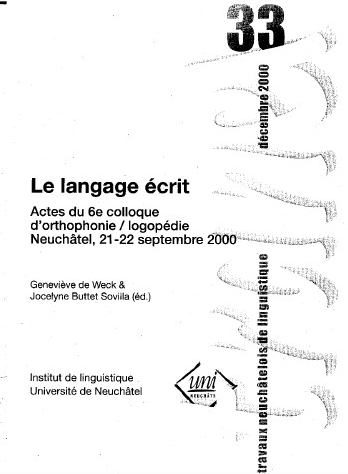Ecrire un récit d’aventures à l’école et à la clinique logopédique
DOI:
https://doi.org/10.26034/tranel.2000.2690Abstract
Based upon a school-class work with textual genres in didactic sequences proposed by Dolz & Schneuwly (1996, 1997, 1998, 1999), the third class pedagogical co-ordinators and teachers from the «Colégio Arquidiocesano de São Paulo» (Brazil) have elaborated a didactic sequence for the teaching/learning of the genre adventure narratives.
In this article we present two students’ productions before and after the teaching in order to analyse the development of their narrative capacities. This analysis is based on Bronckart’s (1997) interactionist socio-discursive model.
Our results suggest significant changes concerning conflicts creation and resolution and their relation to the narrative’s initial and final situations.
We may, therefore, build the hypothesis that a didactic sequence offers teachers a means to select, accurately, which dimensions they shall work with their students.
Besides, we think that this didactic device can inspire speech therapy re-education practices with children having written language troubles concerning narrative discourse.


